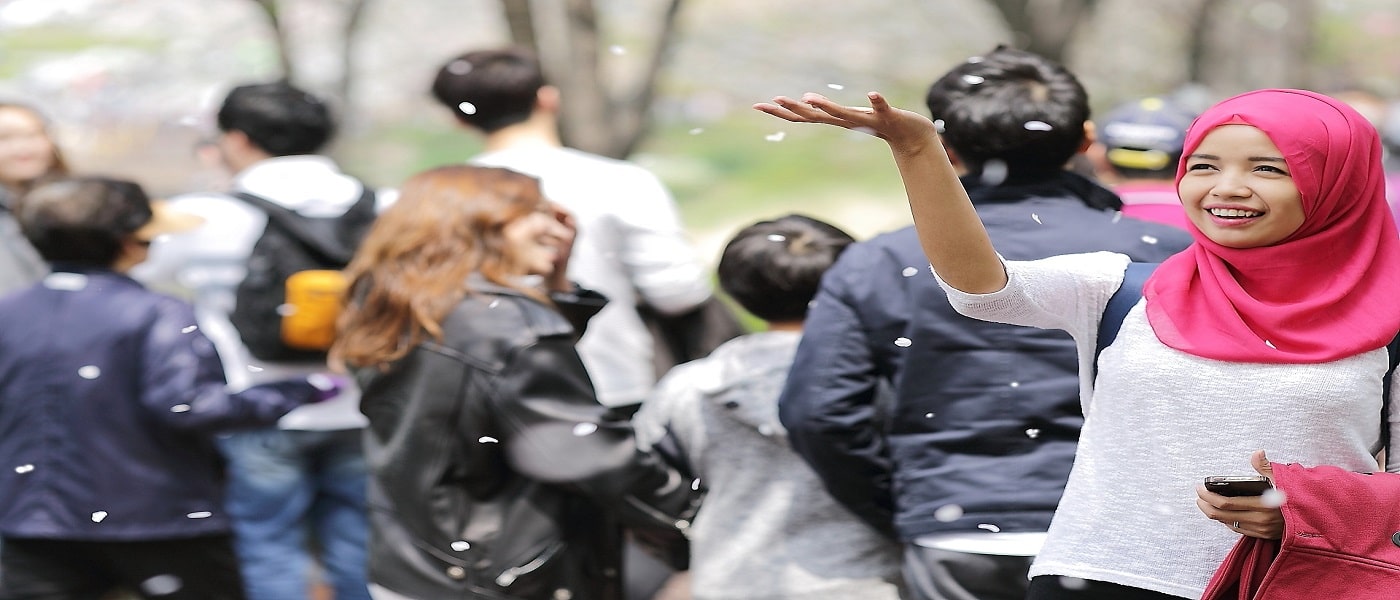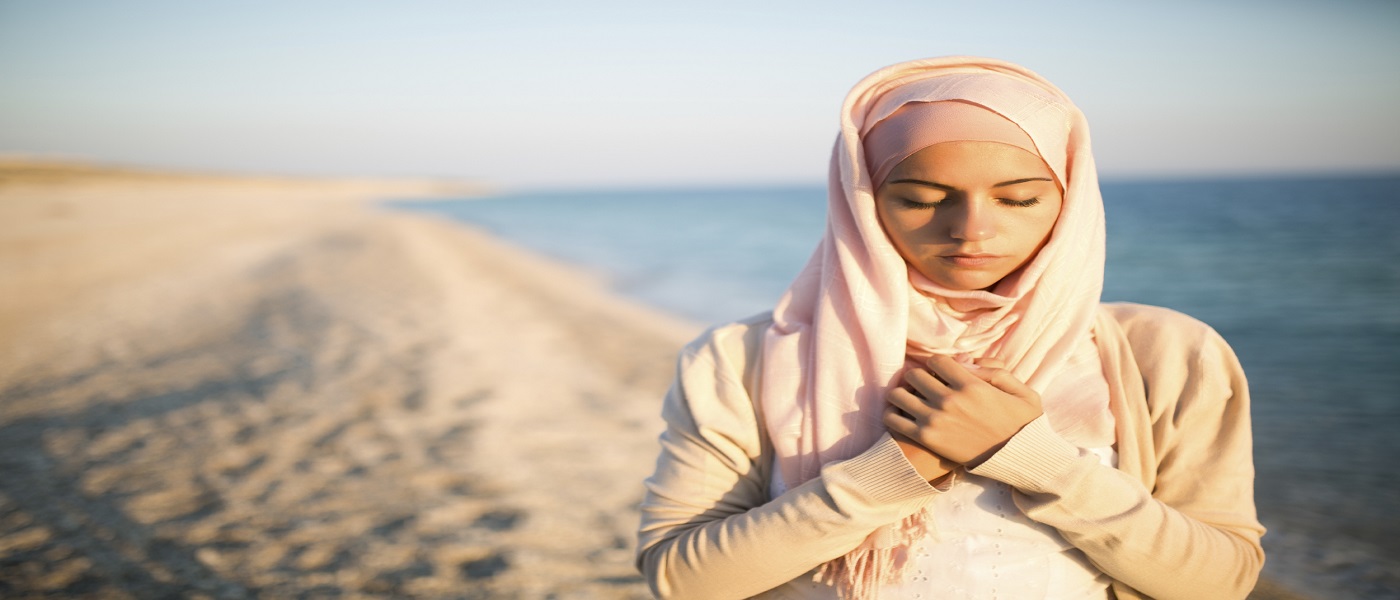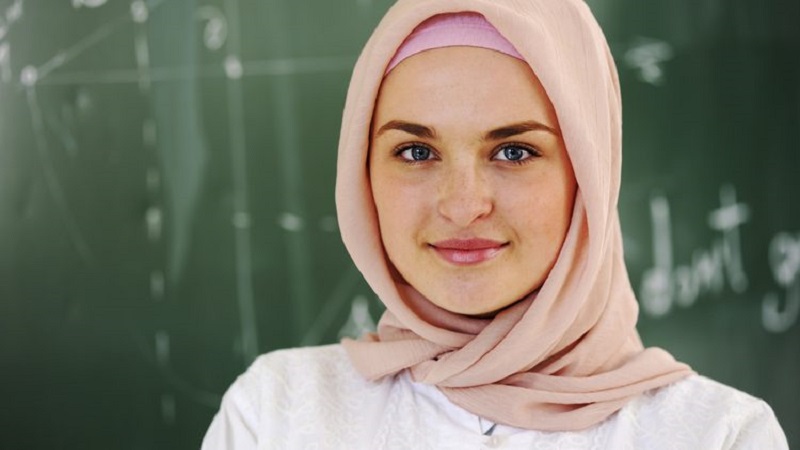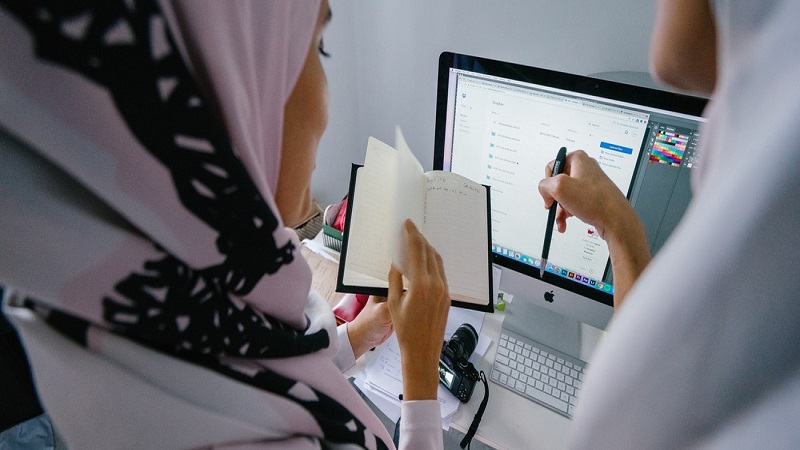

Muslim Women in Society
Social life is one of the most important aspects of human life. From the beginning of the creation of humankind, people decided to live together in order to meet their needs. In this issue, the quality of women’s social participation is one of the fundamental concerns in every culture. let's see about Muslim Women in Society.
Islamic Standards for Muslim Women in society
One of the most notable points in considering this subject in Islam is the condition of Muslim women’s social participation. Muslim women and men are supposed to appear in society equitably. Muslim women just like men have the right to vote, to educate, to teach, to glitter in high political, scientific, athletic states, etc.
Islamic society is a place where no one is known and respected for his/her gender but for his/her virtues and morality. Gender should not be the first outward appearance of one’s personality. In this way, if a Muslim woman cooperates as a teacher, doctor, worker, etc. no one is allowed to consider her sex; rather people are supposed to pay attention to her occupation and knowledge.
In fact, all of us are human beings in society, not women and men. For reaching this utopia, everybody has some duties. God tells us not to underline sexual beauties and also not to look at and search for them. A safe society must make our minds free for more important activities. Such superficial challenges decrease our mental power.
Hijab: A Way of Revealing the Inner Beauty
In this regard women also have their own responsibilities. Islam wants women to have a safe and respectful position in society. This is one of the reasons why Islam asks people especially women to cover their bodies and not to show off their beauties.
That is because no one should look at a Muslim woman as a sexually beneficial object. God in the Holy Quran says: “O Prophet! Tell your wives and your daughters and the women of the faithful to draw closely over themselves their chadors [when going out]. That makes it likely for them to be recognized and not be troubled, and Allah is all-forgiving, all-merciful” (33:59).
It means that this beauty is so valuable that must not be seen or touched freely. But the main point is that there is another beauty which is more important and more valuable than this one, and that is the beauty of our personality, which can affect our appearance. Women must be known by their thoughts; God does not want women, these delightful, beautiful, and also powerful creatures to be just spectacular scenery for men. So, if women wear Hijab people will pay more attention to their inner beauties.
Hijab and Social Activity
By ordering Hijab, Allah is not to say Muslim women must stay at home because Hijab is social apparel, not a domestic dressing. It means women can take part in social activities. Nobody is permitted to have an offensive look at a woman as a sexual object but as a precious and respectful citizen.
There is no contradiction between progression and touching advanced states and wearing Hijab. The thing that Islam limits are the irregular, unconditional, and dishonorable relationship between women and men, the limitation of sensuality.
Hijab and Instinctual Pleasures
Allah has created sexual desire, and it is our natural disposition to satisfy it. Also, Allah has not prevented Muslims from joys. We as humans must legalize our pleasures. This natural instinct is to satisfy by marriage and with our spouse, not anyone else. Women are not born for being enjoyable and admirable for all men.
This attitude is extremely cruel toward women, and if a woman is not sexually attractive, she becomes worthless to society. In short, Islam always emphasizes the freedom of mind and the pleasure of heart in society rather than the freedom of sensuality and misuse of feminine sex appeal. On the other hand, this perfect religion has not ignored human instinctual pleasures, rather it has recommended us to fulfill them in a controlled and morally and legally acceptable way.
Share This Article

4 Facts for Muslim Women in Choosing their Clothes
Finding appropriate clothes can be one of the challenging issues of Muslim women. Living in modern societies necessitates its own lifestyle, including dress code and style, which is different in the four corners of the world. If a woman decides to choose Islam as her faith, what shall she wear?
Once, Imam Sadiq (AS) was wearing a nice expensive suit. A man called Sufiyan Souri saw him in The Holy Mosque and said: “O The son of Allah’s Prophet, I swear to Him that Neither Prophet Muhammad (PBUH&HP), nor Imam Ali (AS) and none of your forefathers wore such an expensive suit!”
He answered: “They were living at a time when most of the people were poor and in need. But today is different. Most people are living a good wealthy, abundant life. This is the time when the good servants of Allah are the most deserving to take advantage of Allah’s blessings.”
Then he recited this verse of the Holy Quran:
Say," Who has forbidden the adornment of Allah which He has brought forth for His servants, and the good things of [His] provision?" Say," These are for the faithful in the life of this world, and exclusively for them on the Day of Resurrection." Thus do We elaborate on the signs for people who have knowledge. Quran (7: 32) [1]
Islam does not forbid us from wearing clothes in line with the society, geographical location, culture, and tradition of the age and country we are living in, but it has some considerations. First, we need to discuss them in general and then refer to the issue of Muslim women.
1. Muslim Women Should Avoid The Peacock Effect!
Standing out and attracting the attention of the people around may cause disrespect and disregard for a Muslim woman or man. Peacocking undignifies the human soul and rather values the physical attractions of the human body. A believing Muslim considers everyone, and never pretends to be rich or poor with the dress he/she wears. Muslim women are special in that field, meaning that Islam insists on their dressing in a particular way. They are believed to be worthy of their soul, their femininity, and above all, for their humanity, not their sexual attractions, which can be a cause of abuse or disrespect in society.
Peacocking is not just a matter of wearing cheap and worn-out clothes or expensive luxurious suits, but it consists of any clothing which attracts irregular attention either with its color, thickness, texture, smell, or even its design.
Imagine that you have attended a funeral in India. White is the color of mourning, and red is the color of feasts and marriage. At that funeral, you encounter a person wearing a red dress, with lots of jewelry and extravagant style. Everyone looks cross at that person. That will be a sign of disrespect for the mourners and might even cause insult and struggle in the middle of the ceremony. And this is against the Islamic culture which is against disrespect and anything counter social.
2. Men Are Men and Women Are Women.
Genders are different from one another, and a healthy society needs them both, each with their definitive characteristics. So, women should look feminine, and men need to take what is masculine. However, there are clothes which both genders wear; like blouses, suits, and trousers, and nothing is wrong with those. But coloring nails or wearing makeup is pretty strange and unusual on a man, and Islam forbids that kind of peculiar look.
3. Look Like a Muslim Woman, not an Unbeliever!
Wearing clothes that belong to unbelievers makes Muslims look like them; as if they are following their beliefs, commands, etc. For instance, we all know that rotated star in a circle is a sign of Satanism. They are examples of clothes that a believing Muslim is to avoid. Any sign, style, or design which might relate to the unbelieving system of thought makes that person seem to believe or appreciate that system of thinking, be it willingly or unwillingly. Here it necessitates Muslims to think and analyze the clothes they choose to wear.
4. Wear Neat, Pure, and Halal!
The clothes that a Muslim wears must be Halal; meaning that it mustn’t belong to someone else who does not want that person to wear what belongs to him/her. The clothes of a Muslim are pure because they tidy up any sign of untidiness from that. It is neat and clean, the habit which is very much praised in Islam.
Imam Sadiq (AS) says: “wear clothes and adorn yourself. Truly, Allah is beautiful, and He likes beauty, but that has to be Halal.”
He also says: “Allah likes beauty and adornment, and dislikes looking disheveled” [2]
Modern fashion is becoming more and more complicated these days. The coming of new casual or formal styles might put Muslim women in dilemmas. In this case and similar occasions, they just need to remember the considerations above, besides Hijab, which is discussed in our article Hijab in Islam. Tips on the infographic of How to wear Hijab in Islam might be helpful, too.
At last, we need to remember that Islam never forbids anyone from being a person for the age he/she is living in. It just asks everyone to observe the rules of Islam and respect the community and society they are living in.
References:
- Bihar al-Anvar, Vol. 40, p 336, Hadith 18
- Sheikh Tousi, Amaali, Vol.1, p. 275
Read More

Women in Islam
As a New Muslim woman, I find the Islamic lifestyle fully responsive in every aspect of my life. Here, Salam Islam deals with different issues regarding women in Islam. Salam Islam is a platform to make those who convert to Islam, more familiar with the benefits that the Islamic life can offer them.
Islam pays specific attention to women’s rights in life. The important role of women in the family, in society and their huge influence in the world, has not been neglected in Islam, as well as their personal and spiritual life is strongly protected based on Islamic lifestyle.
Let’s quickly monitor what Salam Islam provides about women in Islam;

Personal life of Women in Islam
Muslim women’s life might sound boring for those who have not chosen the Islamic lifestyle. A new convert to Islam may find herself confused in different aspects of her life. Salam Islam explains that Muslim women, better than all other women, can enjoy their lives by having lawful fun.
The issue of the Islamic dress code or Muslim women’s Hijab is also discussed from different standpoints in Salam Islam. What does Hijab mean? Is there a history of Hijab in Abrahamic religions? Why at all should they wear Hijab and cover their hair? Is there a chance that one converts to Islam without wearing Hijab? Does the Islamic dress code change from time to time and place to place, based on the conditions of time and place?
Issues Concerning Women’s Marriage in Islam
Salam Islam also covers the important issue of women’s marriage. It tries to clarify women’s rights in the family, and their rights in choosing the right spouse. Since women’s dignity and respect is very important in Islam, therefore women are free to choose a spouse based on Islamic guidelines. It is explained why Islam will allow women to marry a non-Muslim man and live under his demand.

Women’s rights in Islam in society
The issues of women in Islam are sometimes wrongly described and understood in the west. Some western people based on their shallow understanding of Islam, undermine the high status of women in the whole system of Islamic life.
Salam Islam tries to answer most of the misconceptions regarding the aspect of women’s lives in society. Are women in Islam inferior to men? Can they have a career? Why should they cover themselves in society? What about feminism and women’s rights in society?
Prominent Women in Islam and the History
Is there any practical and tangible model for the life of women in Islam? To answer this question, Salam Islam studies the life of prominent women mentioned in the Holy Quran and the history. By studying their life stories and events, one will be inspired to follow the lifestyle of such great role models to have a successful life like them.
Role models such as Saint Mary, Hagar; the Wife of Prophet Abraham, Fatimah; Daughter of Prophet Muhammad (PBUHHP), and Zainab; the granddaughter of Prophet Muhammad (PBUHHP).
If you have any questions about Mulsim women’s issues, you are welcome to send us your questions.
Read More

